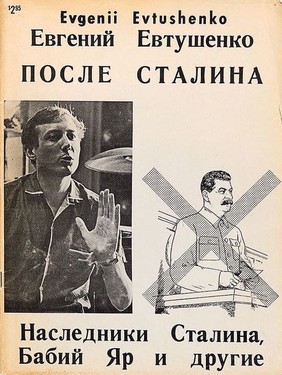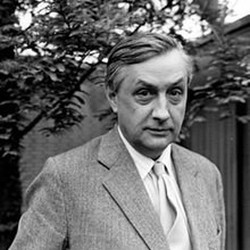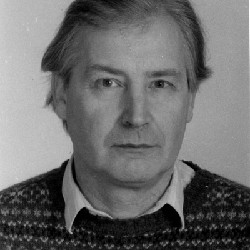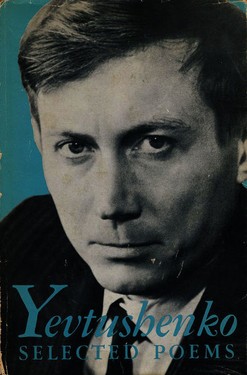Evtushenko is the most popular young Soviet poet. From a purely literary point of view his poems do not rise above a good average level. But he is exceptionally gifted in expressing the feelings of the Soviet younger people, responsive to their problems, courageous in raising them; and so he became a kind of mouthpiece for the youth in the years after the war.
Evtushenko was born in 1933 in a remote Siberian town near the railway station Zima (Winter) on the way to Irkutsk. The poet’s great-grandfather, a peasant, had been exiled to Siberia for participation in a peasant rebellion. The family struck roots in the new place and never returned to the Ukraine.
Evtushenko’s poems often have an autobiographical character. Many interesting details of his biography are given in the instructive introduction to Selected Poems. One regrettable error in the introduction demands correction: “By 1948 the stern directives of Zhukov, the Minister of Culture, made it clear that the outlook for imaginative poets was no more favourable than in the thirties” (p. 8). It was not Zhukov who gave these directives, but the late Andrei Zhdanov, who was not Minister of Culture (this Ministry was created in 1953) but Secretary of the Central Committee of the CPSU, and these “stern directives” were issued not in 1948 but in August–September, 1946.
Selected Poems were translated by “a poet who knows no Russian and a student of Russian who is not a poet.” The latter brought to the poet a word-for-word translation of the poems: the poet worked to bring these raw translations into verse. These is not the best and not an easy method of translation and in the present case not in all places fully successful, but for readers who do not read Russian the booklet provides some insight into Evtushenko’s poetry. Selected Poems contains an important autobiographical poem “Zima Junction” (pp. 19–51) and twenty-one partly casually selected smaller poems (pp. 52–86), among them the famous “Babii Iar.” Some useful notes are added at the end of the booklet.
The second book is a wide collection of Evtushenko’s poems in original Russian, densely printed in double-column book form. It includes in toto the largest collection of Evtushenko’s poems, Vzmakh ruki, published in Moscow in 1962 (346 pp.) and twenty-five poems more, among them “Babii Iar” and “Stalin’s Heirs” but not “Zima Junction.” This gap was probably dictated by reasons of economy (the poem would require the adding of six full pages), but it is highly regrettable in this excellent collection.
New York City
Vera Alexandrova





